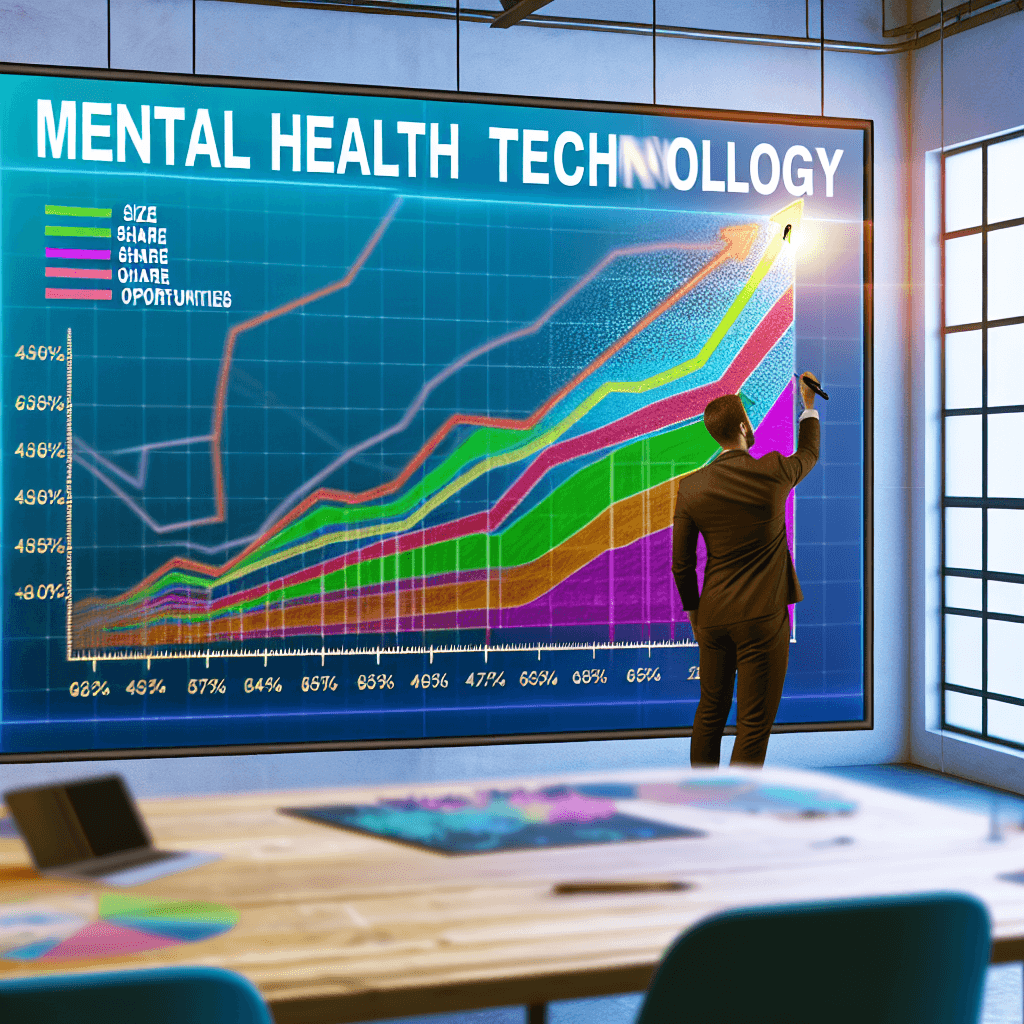Explore the Mental Health Technology Market: trends, size, share, opportunities, and forecasts.
Mental Health Technology Market Size, Share, Opportunities & Forecast

Table of Contents
Mental Health Technology Market Size, Share, Opportunities & Forecast

The mental health technology market is rapidly evolving, driven by increasing awareness of mental health issues, technological advancements, and the growing acceptance of digital solutions in healthcare. This article explores the current landscape of the mental health technology market, examining its size, share, opportunities, and future forecasts. By integrating statistics, case studies, and expert opinions, we aim to provide a comprehensive overview of this dynamic field.
Current Market Overview
The global mental health software and devices market is experiencing significant growth. According to a report by Grand View Research, the market was valued at approximately USD 4.1 billion in 2020 and is expected to grow at a compound annual growth rate (CAGR) of 16.7% from 2021 to 2028. This growth is fueled by several factors including the increasing prevalence of mental health disorders, rising demand for telehealth services, and greater use of mobile applications.
Key Drivers of Growth
Several key factors are driving the expansion of the mental health technology market:
- Increasing Awareness: There is a growing recognition of the importance of mental health, which has led to increased public and private investment in mental health technologies.
- Technological Advancements: Innovations in AI, machine learning, and data analytics are enhancing the effectiveness and accessibility of mental health solutions.
- COVID-19 Pandemic: The pandemic has significantly impacted mental health globally, leading to a surge in the use of digital mental health services.
- Regulatory Support: Governments worldwide are increasingly supportive of digital health solutions, including those for mental health.
Segmentation of the Market
The mental health technology market can be segmented by type, application, and end-user:
- Type: The market is divided into software solutions (including mobile apps and desktop software) and hardware devices (like wearable technology).
- Application: These technologies are used for clinical decision support, data analytics, telehealth, and patient management.
- End-User: Primary users include healthcare providers, patients, and research institutions.
Geographical Insights
North America currently leads the global market, attributed to its advanced healthcare infrastructure, high adoption of digital health solutions, and substantial investments in mental health startups. However, Asia-Pacific is expected to witness the fastest growth during the forecast period due to increasing awareness of mental health issues, rising healthcare expenditure, and the expanding presence of major market players in this region.
Impact of Technology on Mental Health Services
Technology has transformed the way mental health services are delivered. Here are some key impacts:
- Increased Accessibility: Digital platforms, especially mobile health apps, have made mental health services accessible to a broader audience.
- Improved Personalization: AI and analytics enable more personalized care by analyzing patient data and predicting treatment outcomes.
- Enhanced Support: Online communities and digital therapies provide continuous support to individuals, which is particularly crucial for mental health management.
Challenges and Barriers
Despite its rapid growth, the mental health technology market faces several challenges:
- Data Privacy Concerns: The handling of sensitive personal health information raises significant privacy and security concerns.
- Lack of Standardization: There is a need for standardized regulations to ensure the efficacy and safety of mental health technologies.
- Resistance to Adoption: Some healthcare providers and patients are hesitant to adopt new technologies due to lack of trust or familiarity.
Future Outlook and Predictions
Looking ahead, the mental health technology market is poised for continued growth. Innovations such as virtual reality therapy, chatbots, and advanced predictive analytics are expected to drive further expansion. Additionally, as societal attitudes towards mental health continue to evolve, there will likely be a sustained demand for technological solutions that can provide effective support.
Conclusion
The mental health technology market is at a pivotal juncture, with significant growth potential and numerous opportunities for innovation. As awareness of mental health issues continues to increase and technology advances, this market is expected to flourish. Stakeholders in the healthcare sector, technology innovators, and policymakers must collaborate to overcome existing challenges and harness the full potential of mental health technologies. By doing so, they will not only contribute to the growth of this market but also improve the lives of millions of individuals worldwide.
In conclusion, the mental health technology market offers promising prospects for addressing the pressing mental health needs of the global population. With strategic investments and a focus on overcoming current barriers, the future of mental health care looks increasingly digital and more accessible to all.








